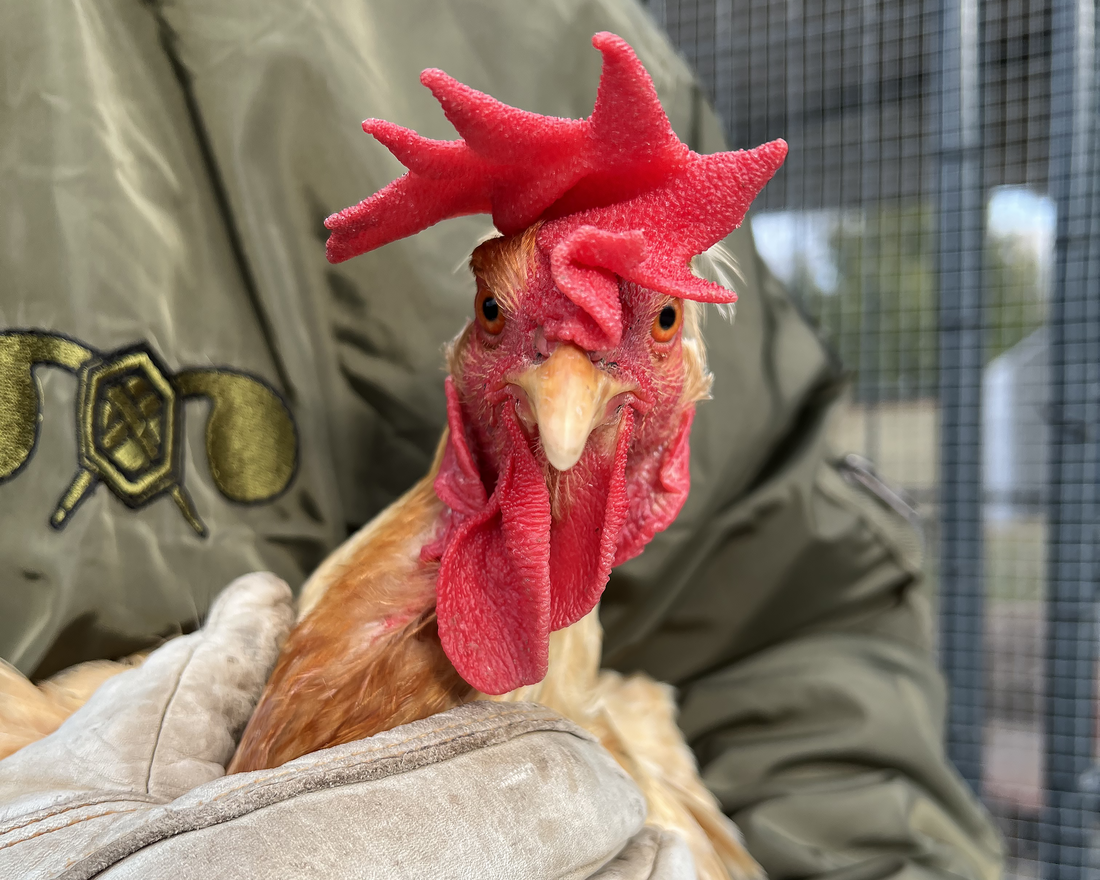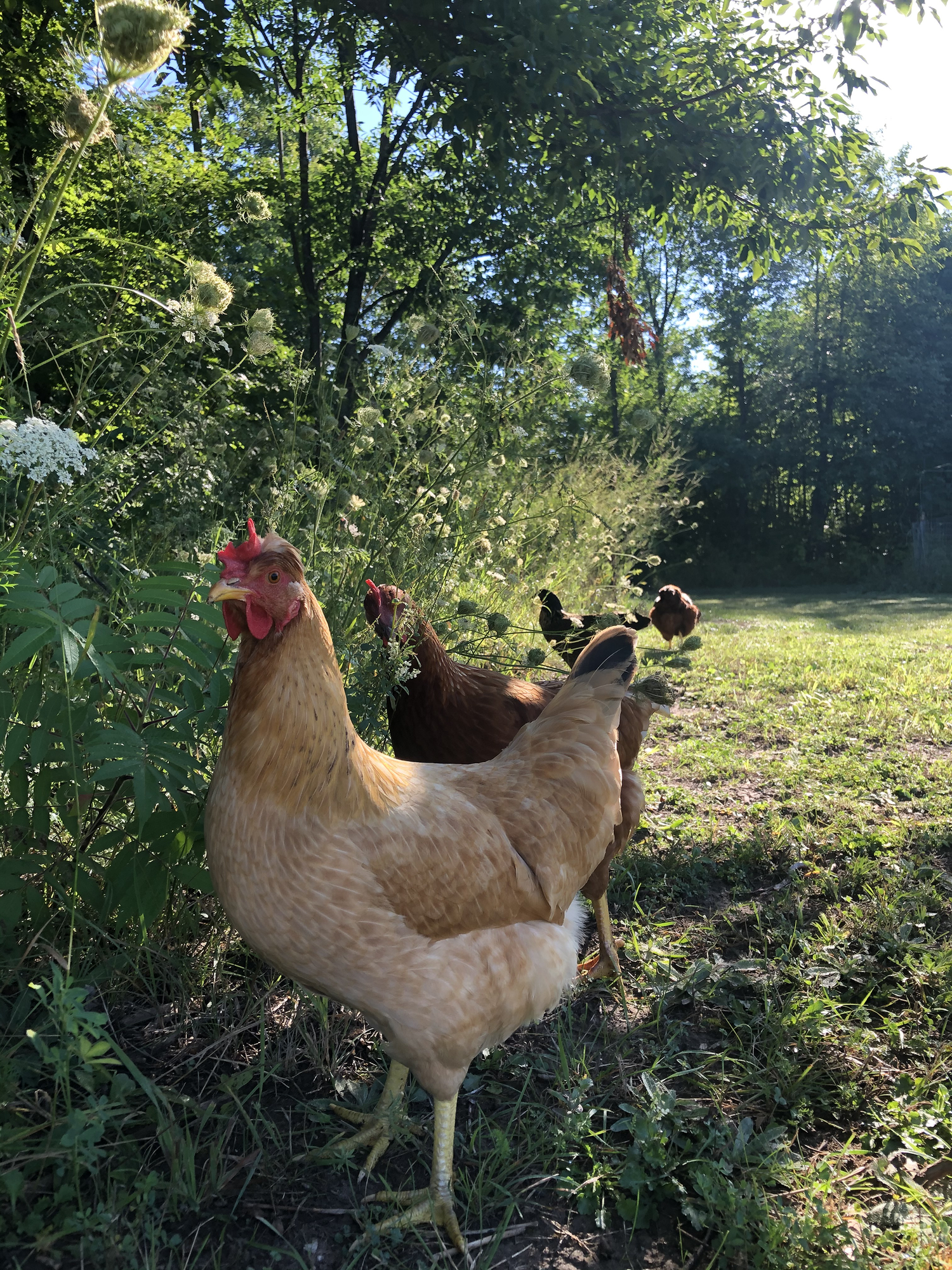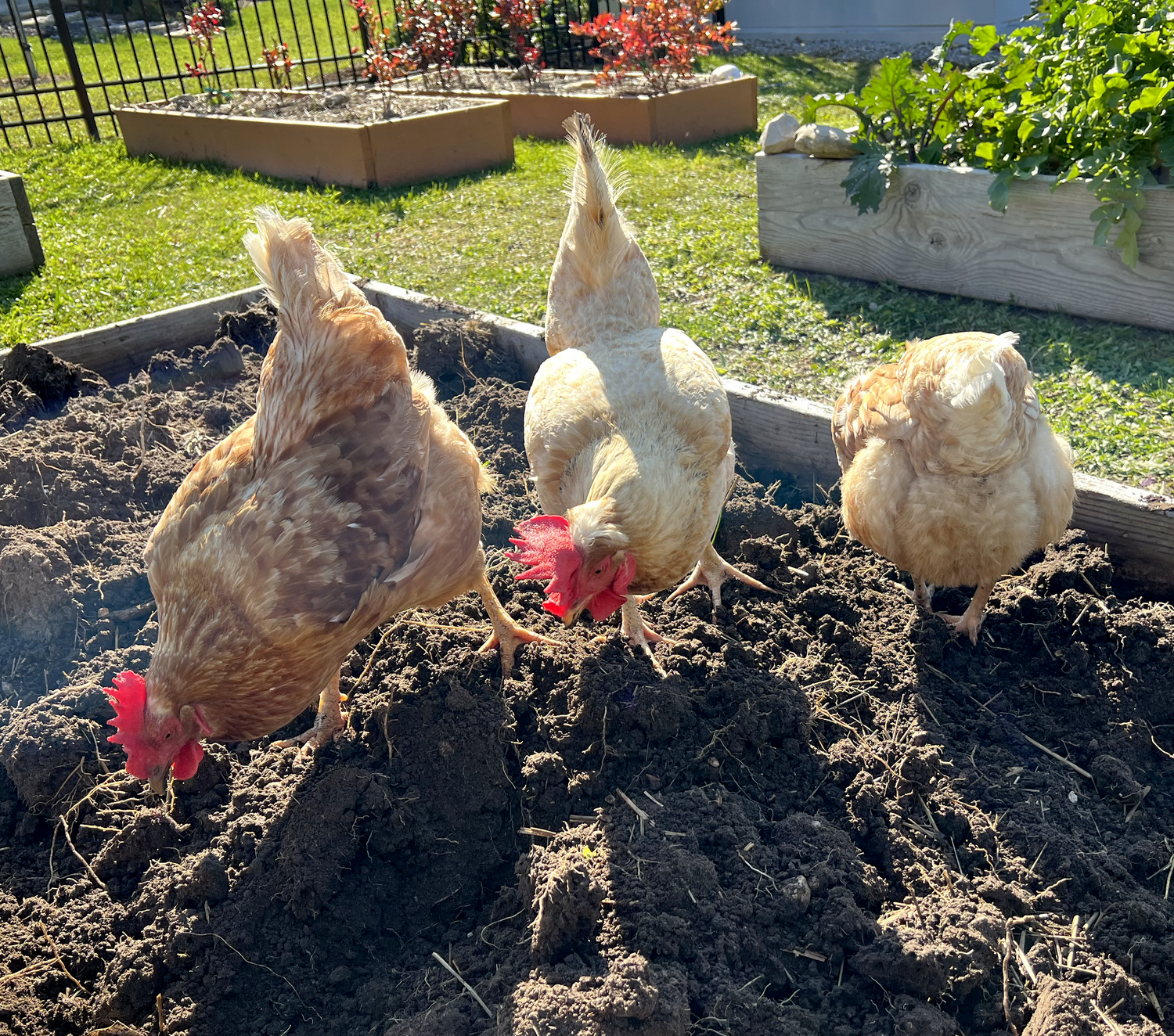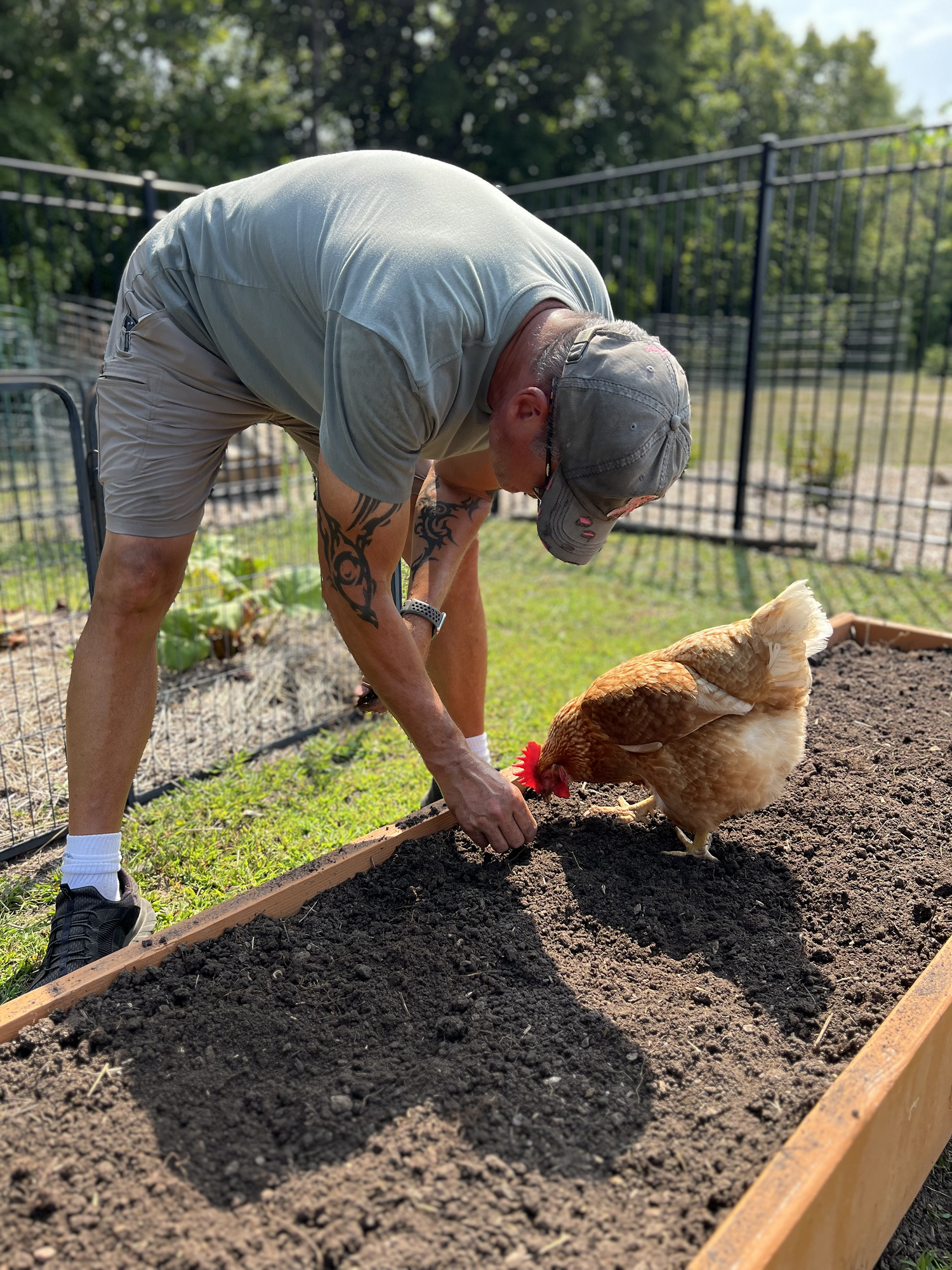

Why Chickens?
With our gardens, orchard, and flower beds continually expanding, Bonnie and I needed help controlling harmful grubs and pests. Also, we needed to do it organically since we were raising bees. We did some research and thought that maybe free-range chickens might be a good solution. We liked the fact that chickens would eat destructive grubs and pests, lay wonderful free-range eggs, and add to our compost on a daily basis.
So, knowing almost nothing about laying hens, we decided to give it a go. We ordered some baby chicks (from Meyer Hatchery) and built a chicken coop with a secured run. They grew up fast, and soon we had a flock of laying hens.

The Daily Routine
The daily chicken routine is quite easy. When I get up, I make my coffee and head outside. The auto door to the coop opens at sunup so they are already out of the coop and in the chicken run, clucking away. I let my girls out and they get to business. They have plenty of grass, bugs, and freedom. I clean out the coop, clean their water feeder, and make sure the food dispenser is full. Then I take my morning walk around the farm, sipping my coffee, usually with my chickens following me. I plan my day, enjoy the quiet of the morning, and just smile at my chickens doing silly things.
Chickens are survivors. They are always looking for predators and squawk loudly and flee to safety when they sense danger. I keep my eyes open as well. During the morning, they will run to the coop when it's time to lay an egg. Then they let everyone know how proud of their accomplishment with some very loud squawks. They rejoin the flock, which is constantly moving, and get back to work. When it’s time to settle in for the night, they listen to me as I guide them to the coop.

Cute Yet Destructive
Chickens can be destructive if not supervised properly. If allowed in the vegetable garden and flower beds when the plants are young, they will forage, destroying anything in their path. The vegetable garden is surrounded by a fence, so we keep them out by closing all the gates. For plants outside the fenced garden, we place rocks around the new plants until they are established. They won’t scratch and dig in those areas.

Our Feathered Pets
Unless you raise and name your own laying hens, you could never imagine how good they can be as outdoor pets. So, when I am asked, “Why Chickens?” it’s more than all the work they do for us every day. It’s simple: they make me smile.
